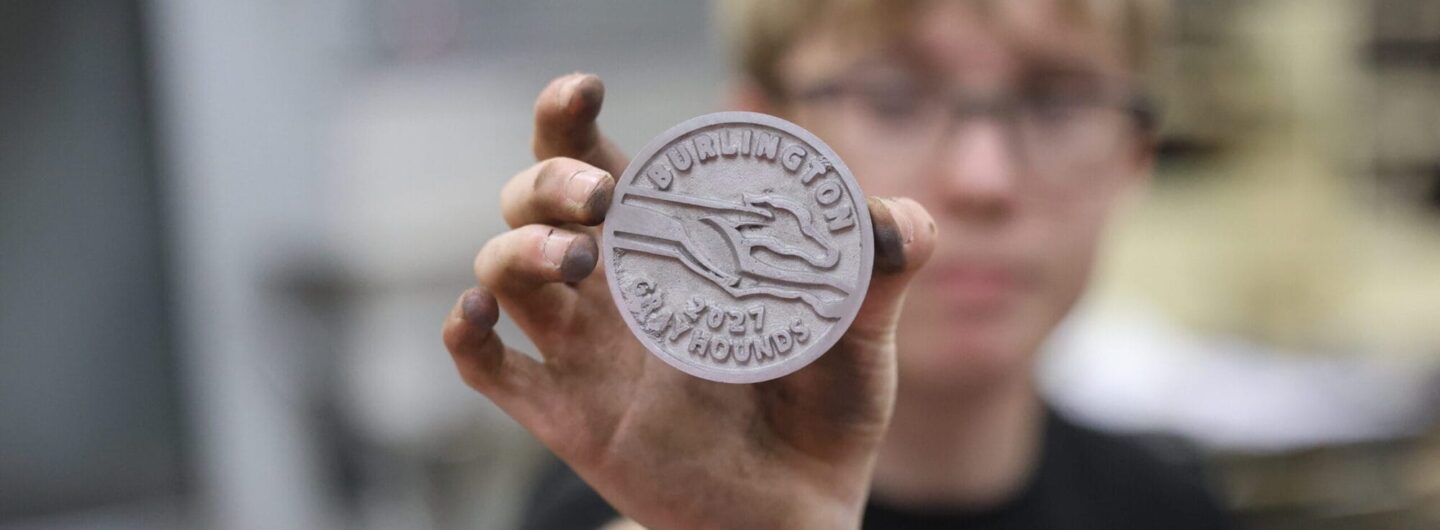The Manufacturing CTE pathway immerses students in the dynamic world of manufacturing and engineering. This pathway is meticulously designed to provide students with the skills and knowledge needed for a successful career in various manufacturing fields, from machining to computer-aided design and welding.
Through a blend of theoretical instruction and hands-on experience, students will gain proficiency in essential manufacturing processes, tools, and technologies, setting a strong foundation for both immediate employment and further education in manufacturing and engineering disciplines.
Manufacturing Pathway at a Glance
Manufacturing Courses
Computer Aided Drafting, Introduction to Manufacturing, Machining and Manufacturing, Precision Machining and Manufacturing, Introduction to CNC Machining, Computer Integrated Manufacturing, Precision Machining and Manufacturing Production
Other Suggested Courses
Introduction to Engineering, Principals of Engineering, Intermediate Welding
Check out the Program of Studies for a complete list of course offerings and descriptions.
National Workforce Statistics for Machinists
| 2023 U.S. median pay | $53,180 per year/$25.57 per hour |
| No. of U.S. jobs in 2022 | 389,700 |
| Projected need | 38,200 annually |
Southeast Iowa Workforce Statistics
| Machinist wage | $24.50-$27.31 per hour |
| Openings per year | 75 |
Manufacturing Pathway Courses, Learning Objectives & Areas of Focus
Computer-Aided Drafting I (CAD I)
This introductory course covers the basics of Computer-Aided Drafting, focusing on both 2D and 3D design. Ideal for freshmen and essential for students pursuing advanced manufacturing courses, CAD I lays the groundwork for future studies and practical applications in drafting and design.
Introduction to Manufacturing
In this course, students learn fundamental skills in measurement, planning, and layout related to metalworking. The hands-on projects include creating a mold and casting, constructing a tool box from sheet metal, and operating a machine lathe. This course is recommended for those interested in metalworking, machining, welding, or any manufacturing field.
Machining and Manufacturing
Designed for students aiming for careers in machining and machine operating, this course provides extensive experience with metal-cutting machines. Students practice precision measurement and tolerance work using lathes, milling machines, CNC, and more. Mandatory and individual projects help solidify their learning.
Precision Machining and Manufacturing
Building on the previous machining courses, this advanced class focuses on operating CNC machines, laser cutting, and water jet cutting using G Code. Precision and tolerances are emphasized in all projects, preparing students for higher-level manufacturing roles and engineering fields.
Introduction to CNC Machining
This course, available for college credit, introduces students to CNC machining with a focus on programming using G and M codes. Students learn about tooling, programming, and CAM software, gaining hands-on experience with CNC machines and water jet cutting, critical for a career in CNC machining.
Computer Integrated Manufacturing
Activity-based exercises allow students to explore manufacturing systems and the manufacturing processes while developing problem-solving skills used at the college level and in the workplace. Students also will learn how to program CNC machines, robotics and an automated systems.
Other Suggested Courses
Introduction to Engineering Design (IED) – PLTW
Students in IED use a problem-solving model to improve existing products and invent new ones. Using advanced 3D modeling software, they learn to communicate design ideas effectively, making this course ideal for students interested in engineering and industrial vocations.
Principles of Engineering (POE) – PLTW
POE helps students explore career possibilities in engineering and technology through activity-based exercises. They learn about engineering systems and manufacturing processes, further developing problem-solving skills used in higher education and professional environments.
Introduction to Welding
This course introduces students to the properties and applications of various metals through welding. Students gain basic experience in oxyacetylene welding and cutting, ARC welding, MIG welding, and plasma cutting, providing a solid foundation for more advanced welding studies.


